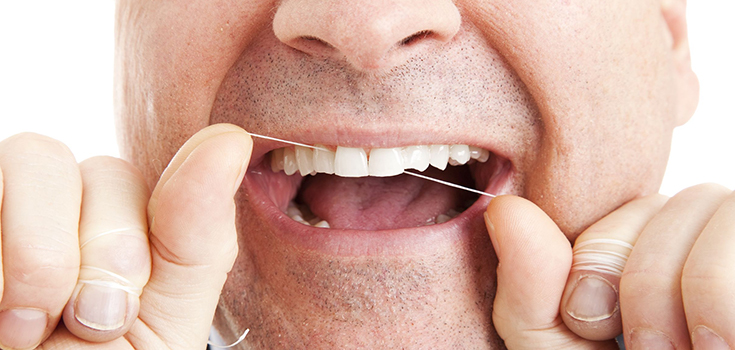Studies Suggest Flossing may not be as Beneficial as Claimed
Studies Suggest Flossing may not be as Beneficial as Claimed
But that doesn't mean to stop flossing
Dentists have long pressed their patients to floss to help prevent gum disease and cavities.
Dentists have long pressed their patients to floss to help prevent gum disease and cavities. However, a new investigationby the Associated Press (AP) is suggesting that flossing might not actually work as well as we have been led to believe.
While Americans are just now becoming aware of what some are calling weak evidence surrounding flossing, the Brits have seemingly known this for a long while. Leading British dentist Professor Damien Walmsley of Birmingham University and advisor to the British Dental Association states that the evidence for flossing is “weak.”
“The difficulty is trying to get good evidence. People are different and large studies are costly to do … until then you can’t really say yes or no. It’s important to tell people to do the basics. Flossing is not part of the basics.” [1]
According to the Associated Press, the trials for flossing over the past 25 years have only shown weak evidence of the efficacy of floss and the studies had large potential for bias.
In the United States, flossing has been a regularly recommended activity since 1979. The surgeon general has even stated that the public should floss consistently. However, according to a new law, these recommendations have to be based on scientific fact. Since the evidence is weak, that recommendation may soon be changing.
Read: 7 Home Remedies for Gum Disease
“The federal government has recommended flossing since 1979, first in a surgeon general’s report and later in the Dietary Guidelines for Americans issued every five years. The guidelines must be based on scientific evidence, under the law.
Last year, the Associated Press asked the departments of Health and Human Services and Agriculture for their evidence, and followed up with written requests under the Freedom of Information Act.
When the federal government issued its latest dietary guidelines this year, the flossing recommendation had been removed, without notice. In a letter to the AP, the government acknowledged the effectiveness of flossing had never been researched, as required.”
President of the American Academy of Periodontology (AAP) Dr. Wayne Aldredge states that although the evidence for flossing is incredibly weak, it might be beneficial for scientists to conduct studies on those with diabetes or smokers, both of which have a high risk of gum disease.
Alredge, however, still recommends that his patients floss between visits, but says that most of them “saw” between their teeth instead of an up and down motion, which is the correct way to do so. [2]
The American Dental Association still states that flossing removes plaque and removes debris between the teeth. And while the spokesman for the ADA, Matthew Messina, says the evidence for flossing isn’t very strong, he also says that it is likely because those who floss are not doing it correctly.
| About Anna Scanlon: | |
| Anna Scanlon is an author of YA and historical fiction and a PhD student at the University of Leicester where she is finishing her degree in modern history. You can find out more about Anna and her books on her lifestyle blog annainwonderland.co.uk. | |
Other Popular Stories:
There are no related stories quite yet.

Post a Comment